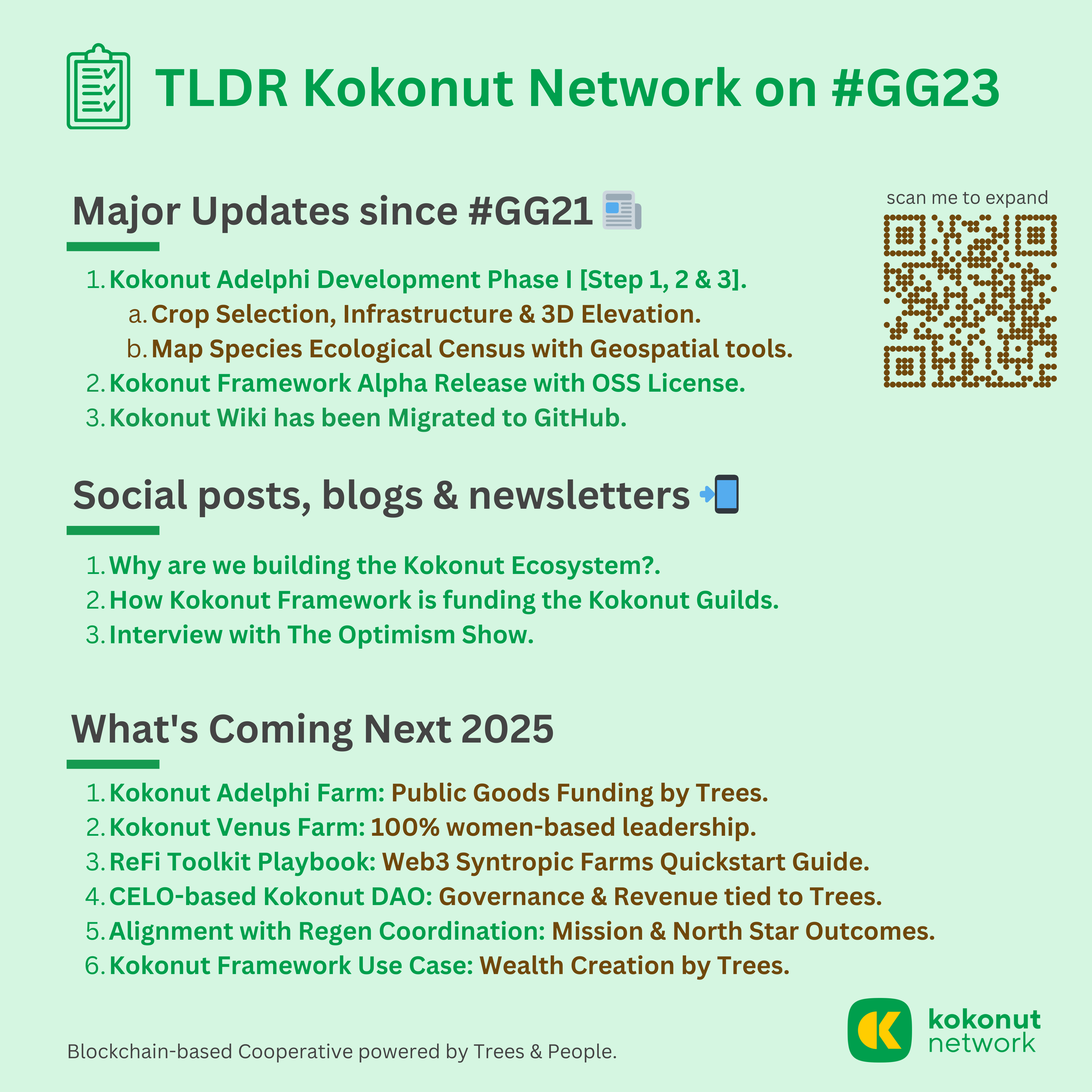Gitcoin Grant 23 (GG23) has different ongoing rounds one of which is the Regen Coordination Global round. The innovative impact-driven funding round is designed to support regenerative finance (ReFi) networks that have demonstrated meaningful contributions to the ecosystem.
The aim of this round is to support a global movement of regenerative communities leveraging Web3 for real-world impact and addressing local needs. One of such communities is the Kokonut Network.
Introduction: About Kokonut Network
Kokonut Network is a decentralized ecosystem for building and deploying syntropic agroforestry farms using Web3 infrastructure.
Using its open-source framework, it allows communities to design farms optimized for diverse funding sources (grants, DAOs, cooperatives, investors) and impact outcomes (public goods, financial returns, or blended).
Kokonut Network currently operates 2 live farms and is developing 4 more across the Dominican Republic, representing a powerful example of Web3 applied to real-world ecological and economic transformation.
Leveraging blockchain and open-source accounting, Kokonut Network creates a community-owned network of nature-based sustainable assets.
The mission is to encourage, organize, fund, and oversee purpose-based Syntropic Farms, by forging partnerships with stakeholders through the Kokonut Framework, which utilizes a combination of Agriculture, Blockchain, Land, and Weather.
Proof Of Impact and What’s Coming Next
Following their participation in the GG21 round, there has been a lot of impact in the Kokonut Network community.
Such as;
- Kokonut Adelphi Ecological Census
This is an on-the-ground survey performed in the design phase of the Syntropic Farms. Data gotten from this census is used to determine the location and species selection to be planted so as to create an ecosystem that fosters soil regeneration and parity with the local environment.
For this survey, a cleanup of the entire area was first performed, followed by registration of every tree by name, state and location using OSS Tools in order to generate ortophoto and GeoJSON with the data for us to get a 3D Model of the land and its density of trees.
So far, over 154 trees has been registered across a spectrum of forest, fruit, and flower species.
- The Kokonut Adelphi Syntropic Farm
The output of the ecological census work was used to inform the design of the Kokonut Adelphi Syntropic Farm.
The ecological census helped greatly in the design of the irrigation system, leveraging the elevation of the land and the selection of species to plant that creates an ecological flywheel across the entire landscape.
- Kokonut Wiki Migration to GitHub, and so much more.
In 2025, Kokonut Network has a line up of projects, from Kokonut Adelphi Farm, the first farm optimized as a Public Good leveraging the Public Goods Funding Powered by Trees Flywheel to the creation of the Local ReFi Toolkit Playbook on how to set up a Web3-powered syntropic farm using the Kokonut Framework and even Increasing Public Building Approach, the community is going all the way. .
Why You should Donate To Kokonut Network
There is a global issue on insufficient funding for agricultural projects, which poses immense mental and physical stress on grassroots farmers. This challenge contributes to deforestation, as people resort to using wood for cooking and cutting down trees due to limited financial incentives to protect their environment.
Most of the labour is done by farmers trapped in poverty due to the lack of avenues to improve their income. These farmers lack the process, knowledge, and resources necessary to compete with corporations that control over 90% of the global coconut market.
The Coconut product market was valued at $11.5 billion in 2018 and estimated to reach $31.1 billion by 2026, this steep increase is associated with the fact that it is the most cultivated and vital palm tree in the world, as it is the main source of vegetable fat. It is also one of the plants that provide a wide variety of products and by-products, serving as a primary source of food, drinks, and shelter for animals.
To reduce deforestation of these very essential trees, Kokonut Network, through a framework with standardized processes, creates job opportunities and enhances the quality of life for those contributing to the network’s well-being. The objective is to establish a fair mechanism for funding, managing, and developing Syntropic Farms while maintaining a commitment to environmental preservation.
How To Donate:
Unlike many Decentralized Autonomous Organizations(DAOs) with great ideas and marketing but no solid business model, Kokonut Network has a based structure of how to achieve their projects.
Their goal is to reduce the obstacles to agricultural development, and rural project funding, while democratizing investment in real-world projects, using blockchain technology.
Donate to Kokonut Network in the Regen Coordination Global Round.

